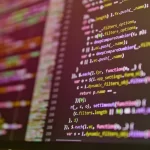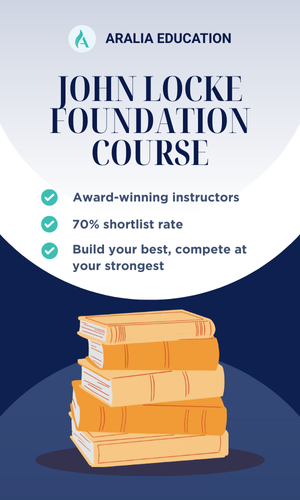Computer science is one of the fastest-growing fields today, offering opportunities app development, artificial intelligence, cybersecurity, digital art, etc. But diving into computer science for the first time can feel overwhelming. With many free resources available, anyone curious and patient can start learning and enjoy the journey into this field.
1. You Don’t Need to Be a Math Genius
A common misconception is that you must excel at math to succeed in computer science. There is some overlap because both subjects involve logic and problem-solving; however, you don’t need to be cranking out calculus proofs to start coding.
When you’re first learning, most projects are about creativity and figuring out how to break a problem into smaller steps. Math only starts to matter more if you go deeper into things like data science or really technical algorithms. Even then, it’s more about being comfortable with numbers than memorizing formulas. What matters way more in the beginning is being curious, sticking with problems even when they’re frustrating, and just being willing to learn as you go.
Build a Strong Foundation in Computer Science
2. Coding Is Just One Part of Computer Science
When most people think of computer science, they usually imagine someone hunched over a laptop typing endless lines of code on a dark screen. While coding is a central skill, it’s just one part of a much larger field.
In a CS program, you’ll also dig into how computers actually work and why we build certain systems the way we do. Along the way, you’ll probably run into topics like:
- Computer architecture
- Algorithms and data structures, the building blocks of problem-solving
- Software design and debugging
- Ethics and cybersecurity
- The history and social impact of computing
Understanding how systems work behind the scenes is just as important as learning to build them.
3. It’s Okay to Get Stuck
Here’s the truth: you will get stuck. Everyone does. Sometimes it’s because of a tricky concept, other times it’s something small and ridiculous, like forgetting a semicolon and spending 20 minutes tearing your hair out over it. It’s frustrating, but it’s also completely normal.
Unlike classes where you just memorize facts or follow a set formula, computer science is about solving open-ended problems. And when you’re solving problems, running into roadblocks is part of the process. What really matters is how you handle it. A few things that always help programmers are:
- Use online forums like Stack Overflow to search for error messages or common issues
- Read the documentation for the language or tool you are using
- Talking it out with classmates, teachers, or even doing some pair programming
4. Projects Teach You More Than Lectures
It’s one thing to learn about loops, variables, and functions in theory, but it’s another to actually build something. That’s where the real learning happens.
Many students say they learned the most by building independent projects. Even small creations like a calculator app, a personal website, or a simple game can teach you valuable skills like:
- Thinking through your plan before you start coding
- Figuring out new concepts on the fly
- Troubleshooting when things don’t work as expected
- Actually finishing a project you started (harder than it sounds!)
The best way to grow is to start small and keep pushing yourself with projects that stretch your abilities. Document what you build and add it to a portfolio. This is especially useful if you want to apply to internships or tech programs later.
You can also check out Aralia’s recent article, “What High Schoolers Can Do with Coding Skills,” which offers real-world examples ranging from building websites and automating routines to joining hackathons and preparing for competitive programming.
5. Computer Science Can Be for Everyone
Some students worry they don’t “look” like a typical programmer or think they missed the chance to start early. But there’s no single background that guarantees success. Many people come to computer science from fields such as the arts, music, psychology, or business.
What really matters isn’t when you start or what you studied before. It’s your curiosity, your persistence, and your willingness to tinker and keep trying. If you like solving puzzles, figuring out how things work, or building stuff just to see if you can, you already have what it takes to find your place in tech.
Aralia Students Are 3x More Likely to Place Top Computer Science Competitions
6. Computer Science Has a Lot of Learning Resources
One of the best things about computer science is that you don’t have to wait for school to teach it to you. There are so many free, beginner-friendly resources online that can get you started right away, whether you want to try Python, build a website, or just experiment.
Here are 8 Coding Challenges for High School Students.
You can also explore YouTube channels, coding podcasts, Discord communities, or mobile apps to learn on the go. Here are the 5 Easiest Programming Languages to Learn.
Further reading:
Take ACSL Competition Preparation with Aralia
At Aralia, the ACSL Competition Prep program helps students build the skills and confidence needed to excel in the American Computer Science League. The course includes two weeks of foundational programming followed by focused sessions on all 12 ACSL topics, with off-topic problems before each contest to boost problem-solving skills. Taught by a former Computer Science teacher and an award-winning ACSL coach, the program offers expert instruction and proven mentorship to help students strengthen their problem-solving abilities and prepare them for success.

ACSL Competition Prep
The program begins with two weeks of dedicated programming practice to provide participants with an opportunity to enhance their skills. Subsequently, each of the 12 ACSL topics is allocated a two-week period, allowing ample time for in-depth exploration and understanding. Prior to each contest, participants are presented with two programming problems that are intentionally unrelated to the current topics. These problems are designed to enhance the coder’s skills and foster comfort in tackling diverse challenges.








